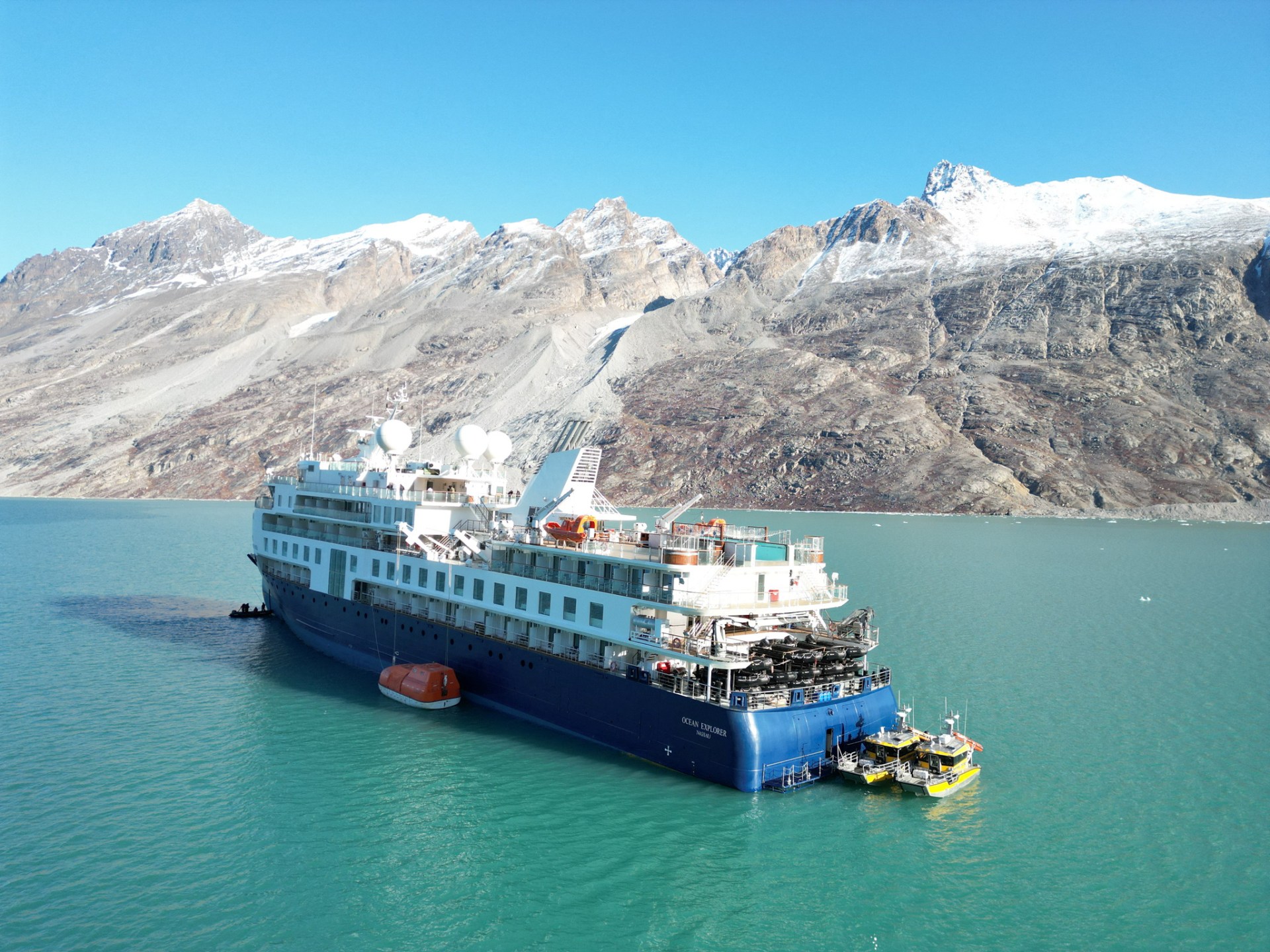A luxury cruise ship that was stuck in a remote part of Greenland for three days after running aground with 206 people on board has been pulled free by a fishing trawler.
The Ocean Explorer cruise vessel was refloated on Thursday, the Danish navy and ship owner said, after having been stuck since Monday in mud and silt in the Alpefjord national park, some 1,400km (870 miles) northeast of Greenland’s capital Nuuk.
“The Ocean Explorer was pulled free,” the Royal Danish Navy’s Joint Arctic Command in Greenland said.
The Joint Arctic Command confirmed that the ship had been pulled free by the Tarajoq, a trawler and research vessel that made a failed attempt to do so on Wednesday.
The Greenlandic fisheries research vessel was able to help tug the ship free, said the cruise ship’s owner, SunStone Maritime Group.
“There have not been any injuries to any person onboard, no pollution of the environment and no breach of the hull,” SunStone said.
“We have just successfully become free now … We are absolutely elated,” Gina Hill, an Australian passenger on board the ship, told Reuters on Thursday.
The Bahamas-flagged cruise ship leaned to the side during the operation and passengers were not allowed to go outside, Hill said.
According to Australian media reports, three people on board have tested positive for COVID-19.
Most of the tourists were from Australia, Britain, New Zealand, South Korea and the United States.
There are few hydrological surveys of the area where the cruise ship ran aground, making it difficult to assess the sea depths.
Danish police have opened a preliminary investigation into the grounding to determine if there was any wrongdoing.
The Ocean Explorer will be taken to a port to assess any damage, while the passengers will be flown home, said SunStone.
“There have not been any injuries to any person onboard, no pollution of the environment and no breach of the hull,” SunStone said in a statement.
Greenland, a semi-sovereign territory of Denmark in the North Atlantic Ocean with a population of just 57,000, attracts tourists with its rugged landscape and a vast ice cap that covers much of the island.
